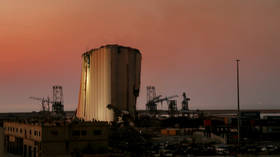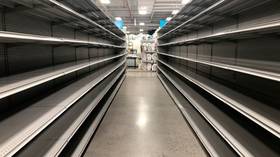Lebanon to get food aid from Russia

Russia has approved Lebanon’s request for humanitarian aid, Lebanese ambassador Chawki Bou Nassar confirmed on Friday during a meeting with Russian Deputy Foreign Minister Mikhail Bogdanov. Moscow will send cereals, foodstuffs, oil derivatives, and other much-needed supplies, as requested by Lebanese Prime Minister-designate Najib Mikati in May.
Discussions on resuming direct flights between the two countries were also progressing, Nassar said, though Western sanctions on Russian carriers and attendant restrictions on surrounding airspace mean any potential routes must meet strict requirements.
The aid package is separate from another package that Russian ambassador Alexander Rudakov said had been approved by Moscow to deliver to Lebanon. That proposal would supply 40,000 tons of wheat on a monthly basis through the end of 2022, but it has only received “preliminary approval” from Lebanon.
US ambassador Dorothy Shea last month sought to one-up Russia and other countries like China and Iran that have offered to help Beirut with its multilayered economic crisis, instead offering a $29.5-million donation from USAID.
While Lebanon previously imported about two thirds of its wheat from Ukraine, the war has seen a sizable portion of that country’s grain exports rerouted to Europe as barter for foreign aid dollars Kiev can never hope to repay. Even before the conflict escalated in February, over 2.2 million Lebanese were facing hunger, by some estimates.
PM Mikati urged the UN to provide food aid in March, pointing to a constellation of crises, including an economic collapse that reduced the Lebanese currency to a tenth of its pre-2019 value, the explosion of Beirut’s main grain storage facility in 2020, and the presence of millions of Syrian and Palestinian refugees. Even if importers are able to find substitutes for the Ukrainian grain no longer bound for Beirut, many Lebanese won’t be able to afford them, trade syndicate president Hani Bohsali told UPI in March.
Negotiations with the International Monetary Fund to unlock a promised $3 billion in aid remain “ongoing,” according to Nassar, who said he expected the replacement of Mikati's caretaker government with permanent leadership would bring “confidence” to the talks. The IMF is reportedly frustrated with Hezbollah and other political factions holding out hope that offshore oil and gas fields could be the country’s financial salvation and is calling instead for the imposition of a standard debt repayment plan, fueled by the usual slate of austerity measures.














